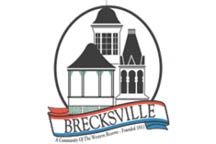Democracy Day organizers want to extend biennial conversation
by Judy Stringer
The city hosted what it billed as the “fifth and final” Democracy Day via a Zoom webinar on Tuesday, Feb. 23.
Yet, resident Robert Belovich, a member of the community group Citizens for Transparent Politics, said the public hearings – which have occurred every two years since 2013 – could “and should” be extended.
“There is great interest” in continuing Democracy Day, according to Belovich. “People have reached out to me and others in the organization, and the many discussions we have had following the hearing have supported the idea that having an opportunity for citizens to publicly address their government is just a good thing.”
Brecksville held its first Democracy Day hearing in February 2013, following an initiative petition and November 2012 vote to enact a law requiring it to do so. The law mandated that the city hold a public hearing for discussion of corporate money in politics every other year, after which Mayor Jerry Hruby will send a letter to Congress declaring “that the people of Brecksville believe that corporations are not people and money is not speech.”
The law included a 10-year sunset provision.
Belovich believes continuing the hearing could be as simple as “amending away” that sunset provision.
“There isn’t a reason that [city council] would not have the power to do that. Whether they choose to do that or not, I do not know,” he said. “But in addition, we can sponsor another initiative campaign with an amended ordinance.”
The citizen-led Democracy Day mandate in Brecksville was a direct response to the U.S. Supreme Court’s 2010 Citizen’s United decision, which equated money spent on political speech with the speech itself, thus giving such spending First Amendment protection. Belovich said the ordinance was written to focus the biennial discourse on community support of an amendment to the U.S. Constitution to reverse the decision.
“But what we’re learning from participants and other citizens who live in Brecksville is that they would just like the opportunity to be heard by their elected officials and to be able to listen to other people who also want to have their opinion or fact expressed publicly,” he said.
The Feb. 25 virtual event included comments from Mayor Jerry Hruby, Cuyahoga County Executive Armond Budish, state Rep. Phillip Robinson Jr. and Belovich, speaking on behalf of Citizens for Transparent Politics. Residents were invited to participate following the scheduled addresses.
A few residents expressed their support for extending Democracy Day during the public comment period. In response, Hruby said he would confer with the city’s law director, “to get some information from him as to how this would be continued, if citizens truly want that.”
Earlier in the webcast, however, Hruby had inferred public interest in Democracy Day was waning based on decreasing participation over the years, and the mayor stated several times that Citizen’s United and any Constitutional fix was a national issue not a local one.
Several residents asked Hruby to address the influence of large PACs, Political Action Committees, on local elections. Hruby said political contributions are reported to and available from the county board of elections. He also stated individual contributions, not PACs, make up the bulk of local campaign coffers.
“As I testified now and I testified before, in the city of Brecksville, the impact of PACs have been limited. … It’s been primarily local unions that have donated toward candidates in our community,” he said. ∞

